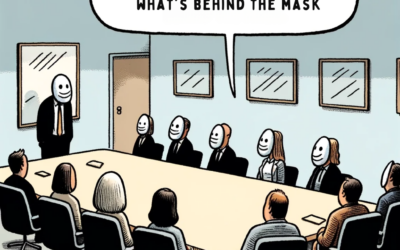Leadership in crisis may become a constant for leaders today. The way you may have led before may not be working for you any longer. You may have to go from a position of knowing to that of not knowing to lead in an environment of uncertainty.
Paradoxically, this takes a great deal of learning to understand that you really don’t know as much as you think you know. One needs to learn about how the brain works and stores information in invariant patterns. That means that the way the brain is storing information occurs by stacking things that are associated rather than perfect replicas. It creates more efficient storage capacity and is not as effective for memory recall. If the item is related you will likely see those things that you expect to see, those images that are frequent, those that carry emotional attachment among other processes. That all means what you hear, see and feel may not be as factual as you may think. You will not easily believe this as a leader, so you will have to dig deep to learn more about it before you can even let this information in.
Many of you will want to dismiss this blog entry just because you don’t want to agree with what is being said. You will try the credibility route. Who is this Gary Cohen anyways? Perhaps you will find poor writing style or grammatical errors so you can use that to dismiss the writing so you will not have to let it in. This is how the brain works, this is how you get led down a path that is not helpful to your leadership of others. Leaders can no longer count on command and control to lead others. They now need to move to understanding, engagement, alignment, and accountability by asking the right questions at the right time. That only comes when you move to a place of not knowing.
It is by moving to a place where you can be comfortable with living with uncertainty that you can lead through it with resilience. Resilience happens when your need to be right, to be the smartest person in the room and your linear way of thinking obscures your reality and prevents you from adapting.



